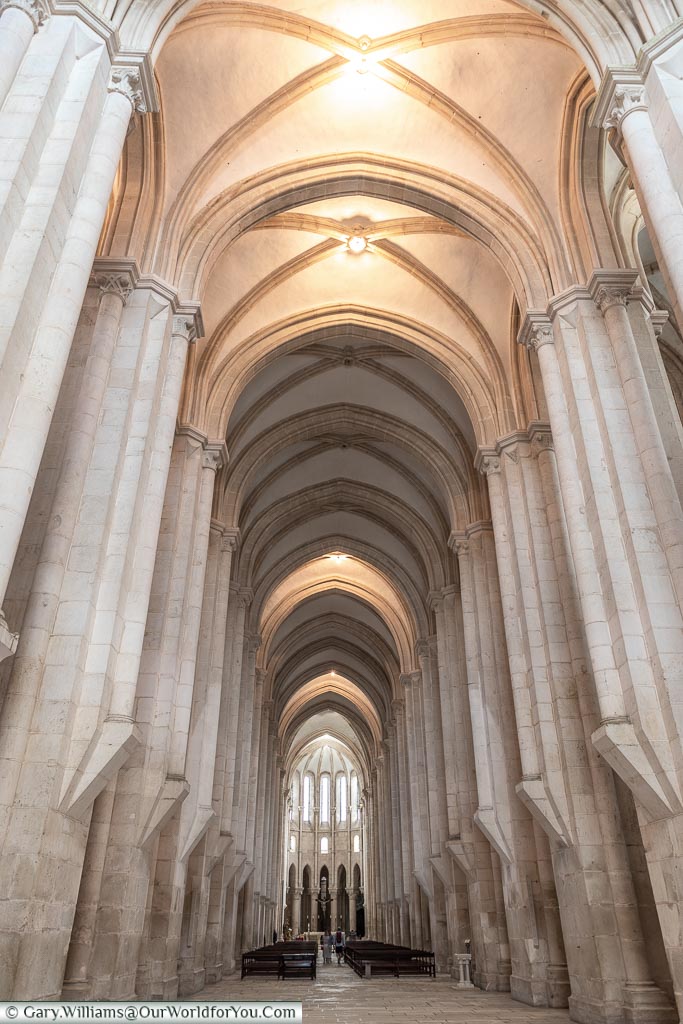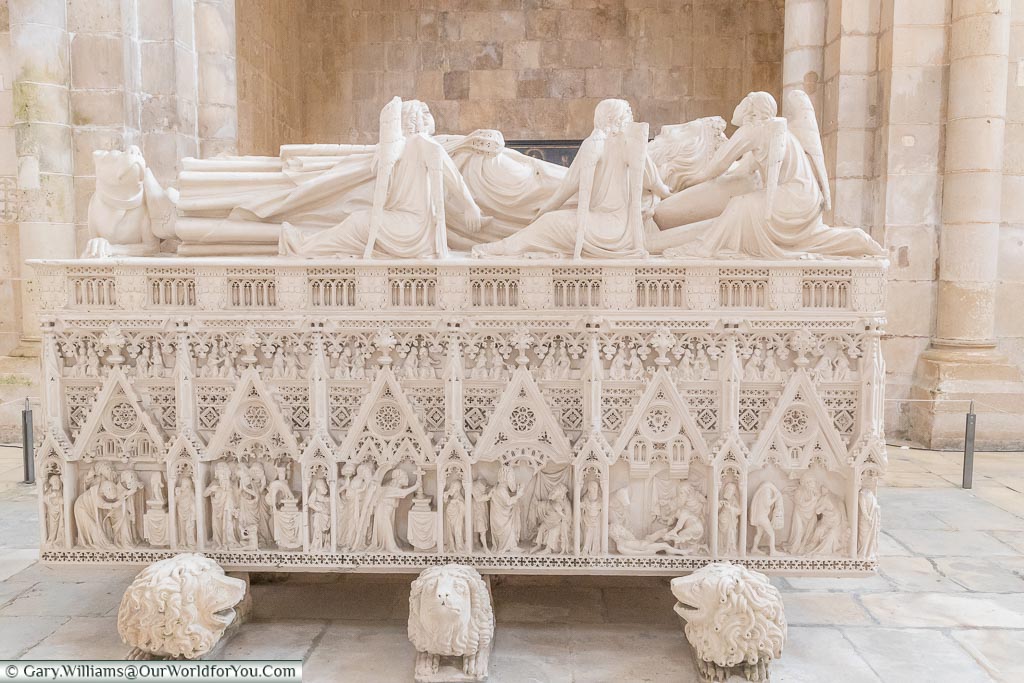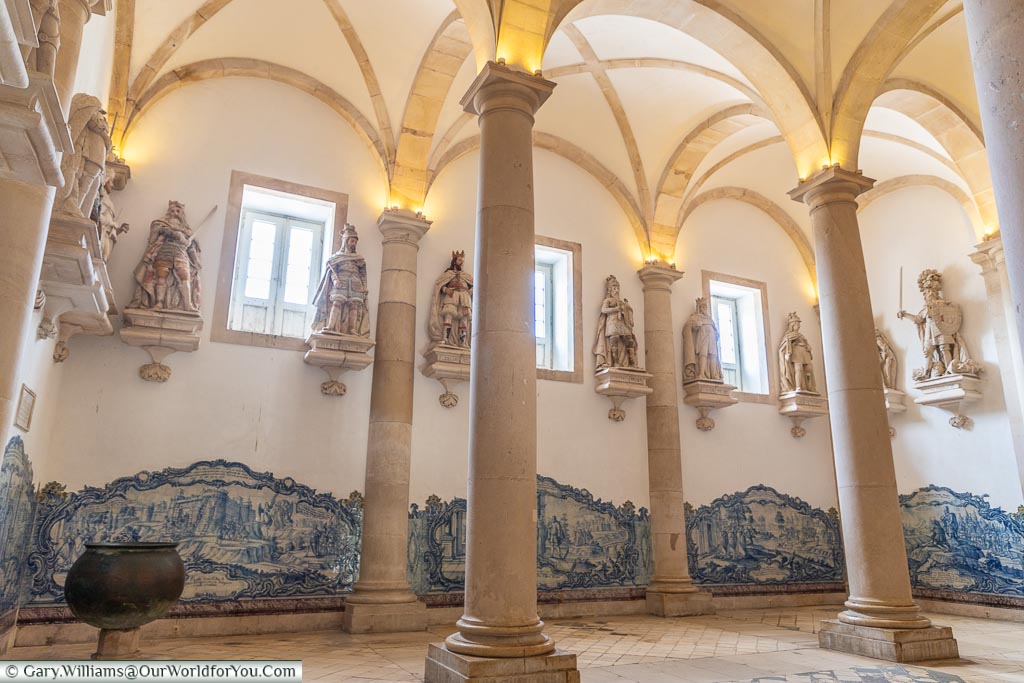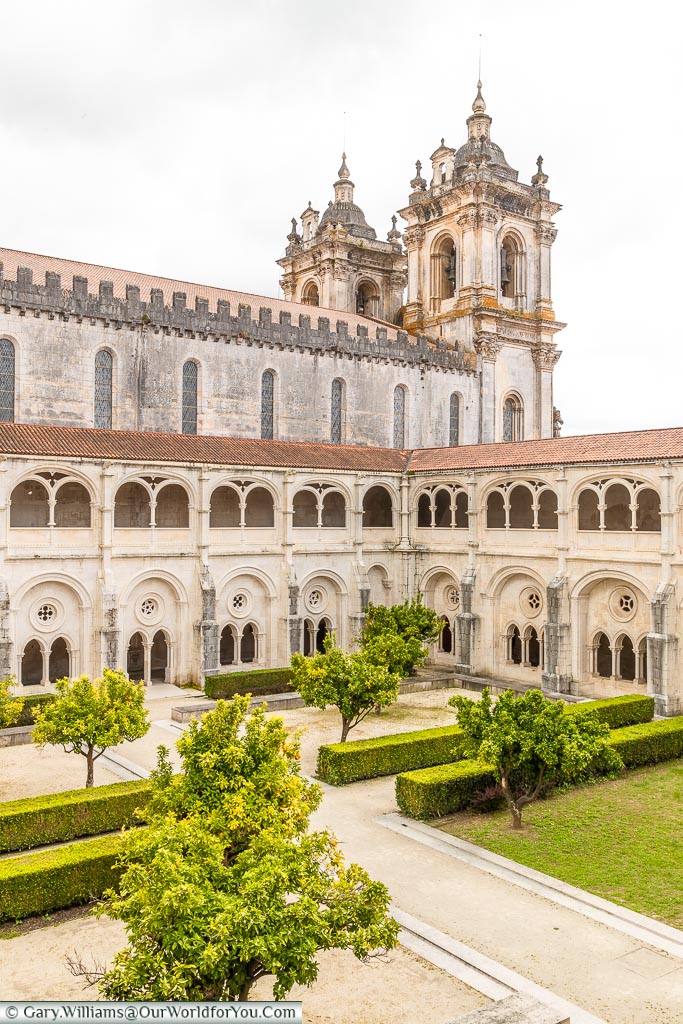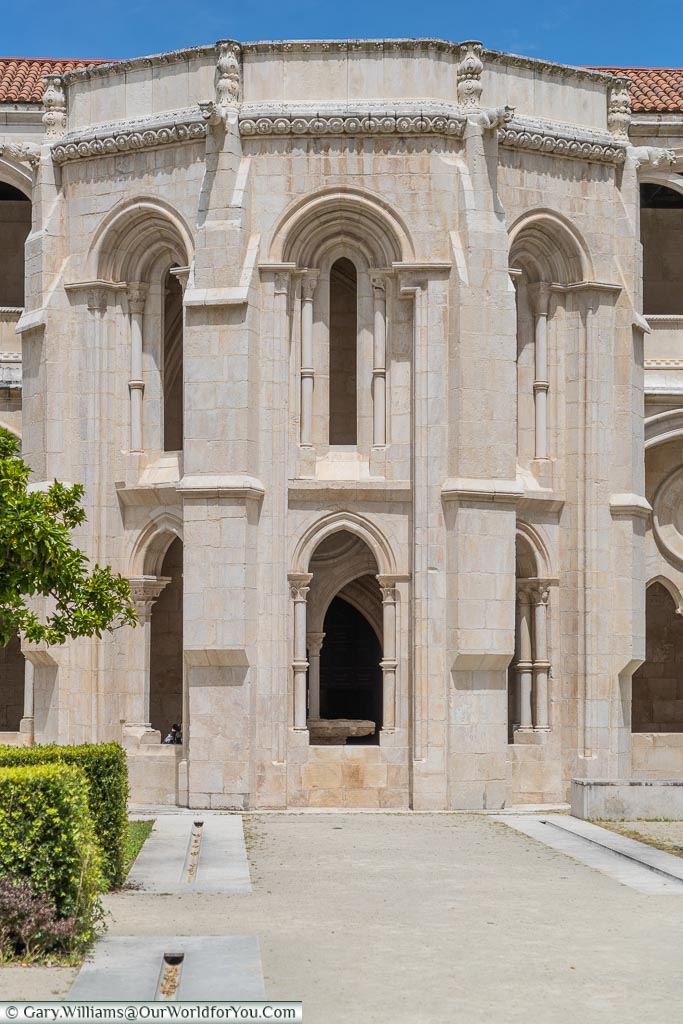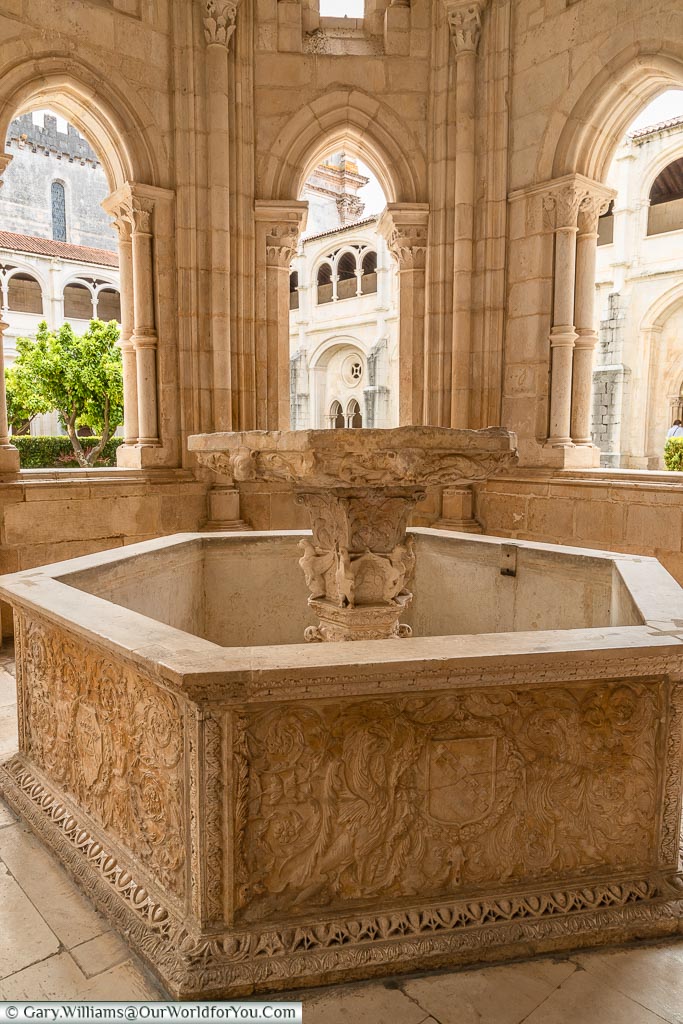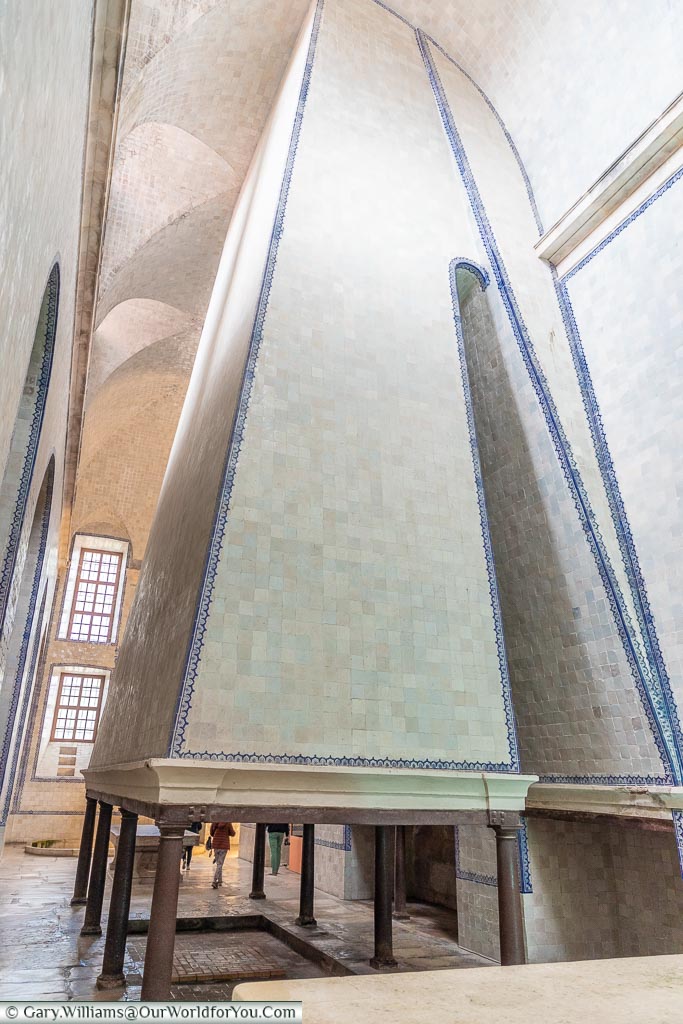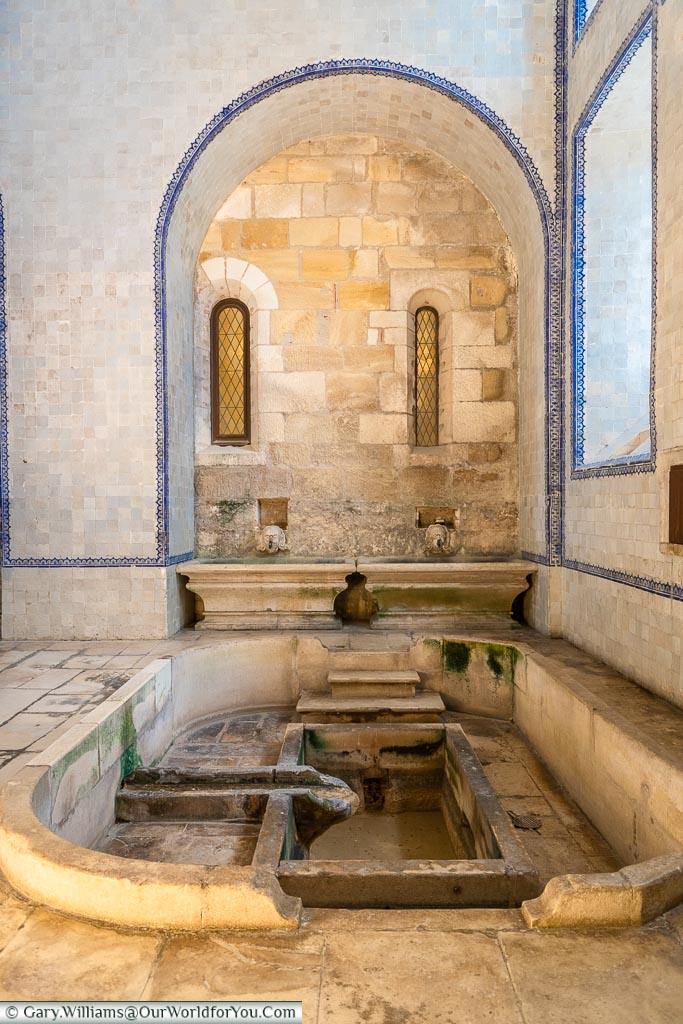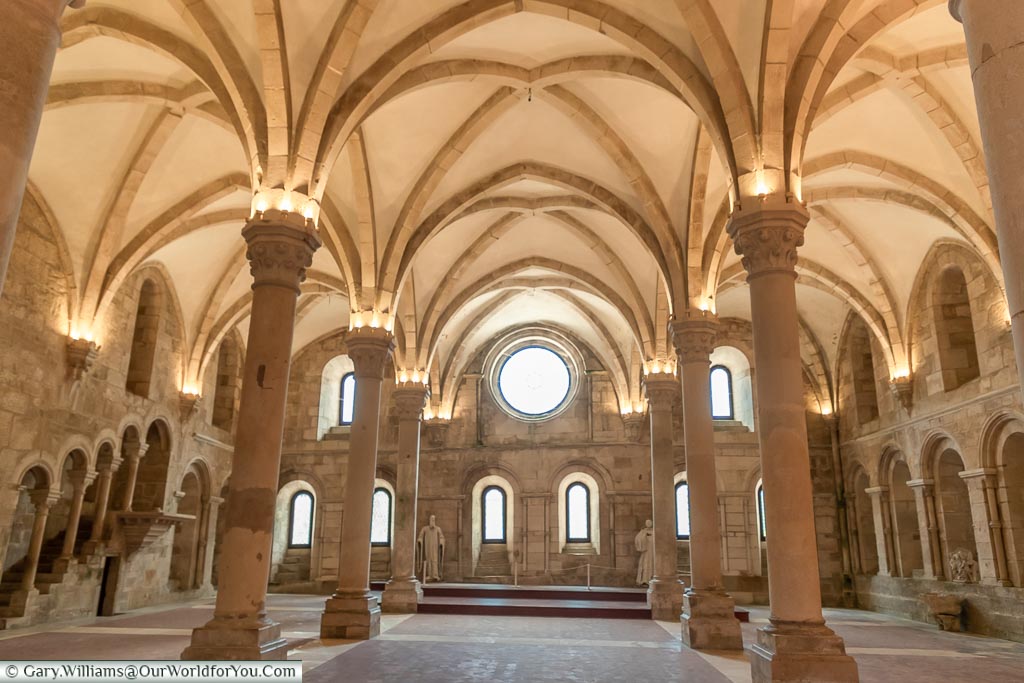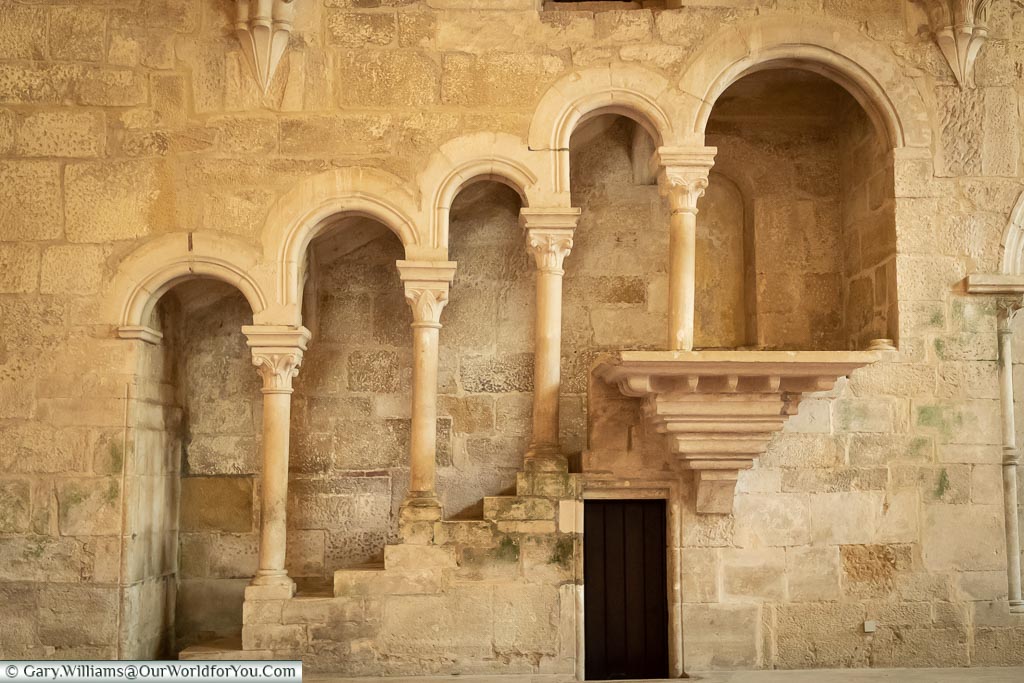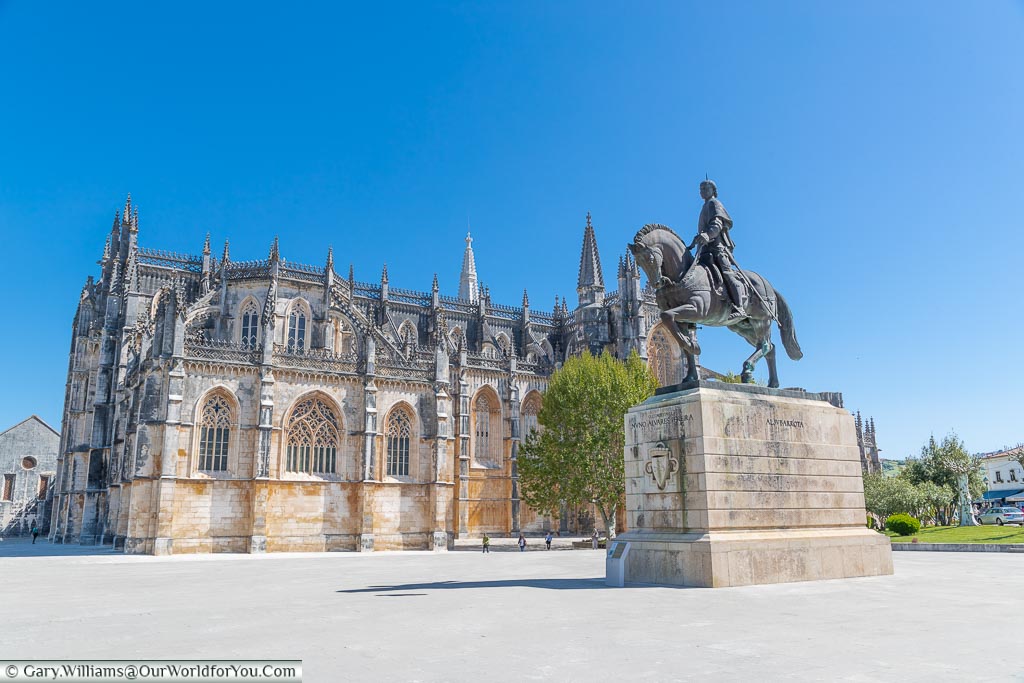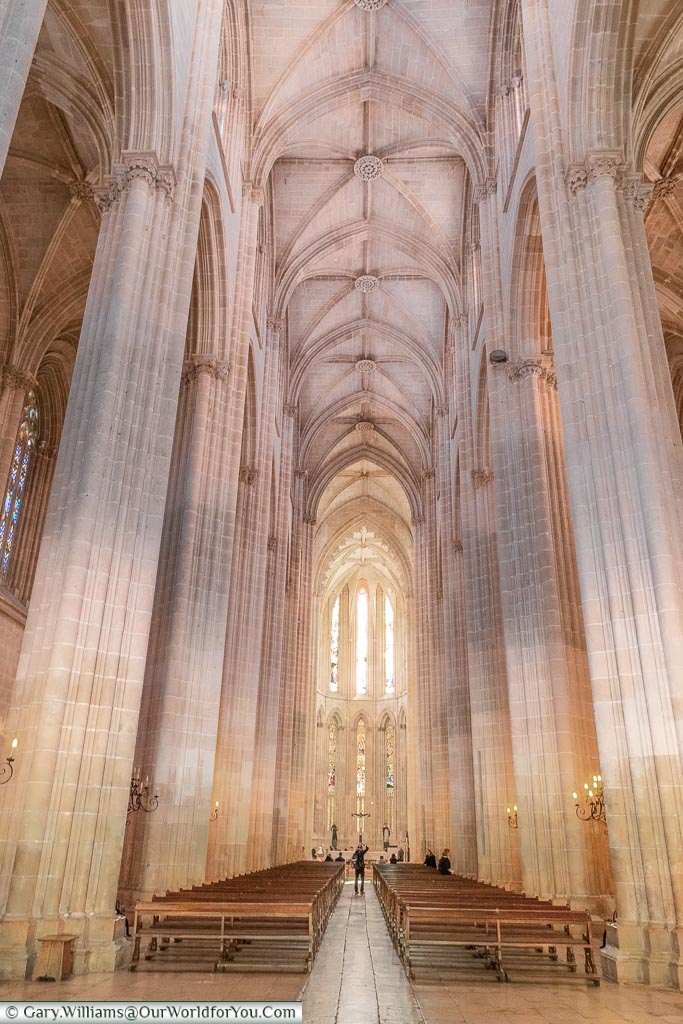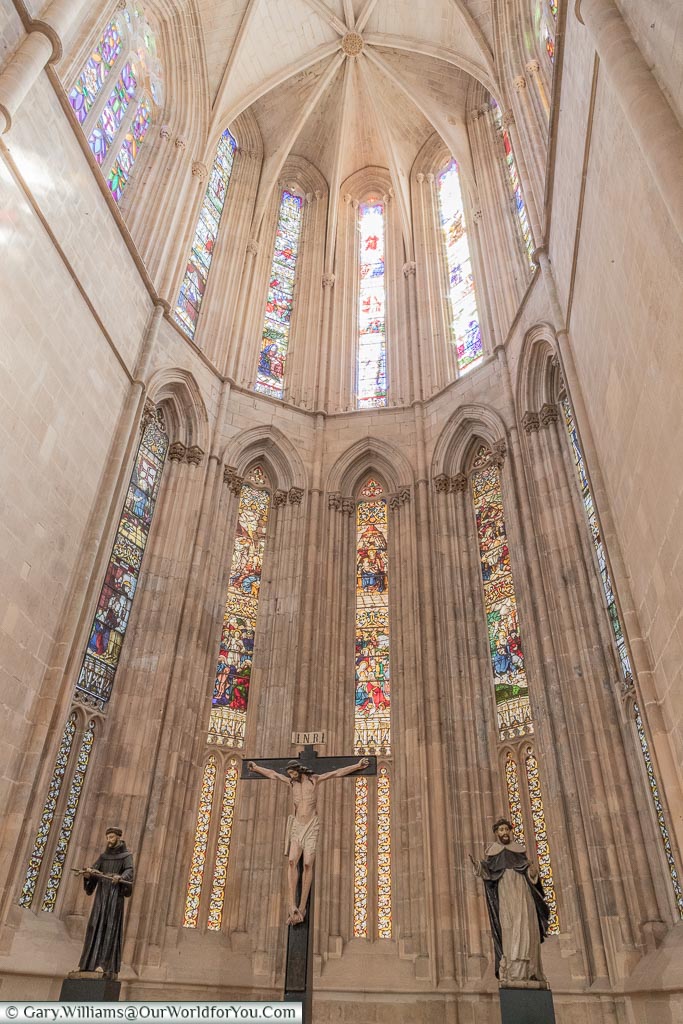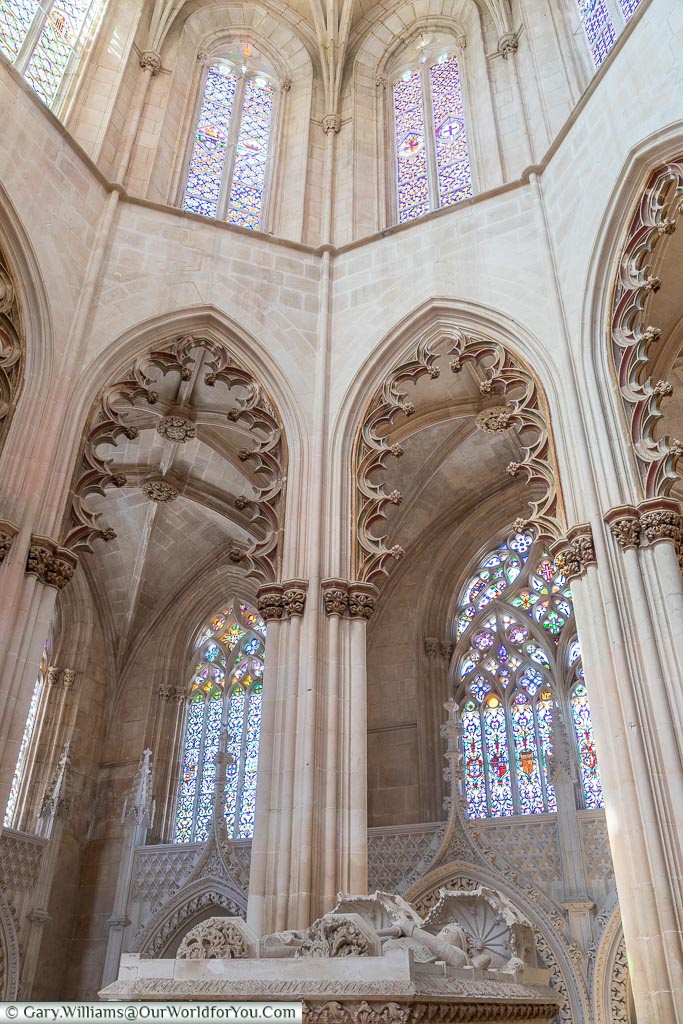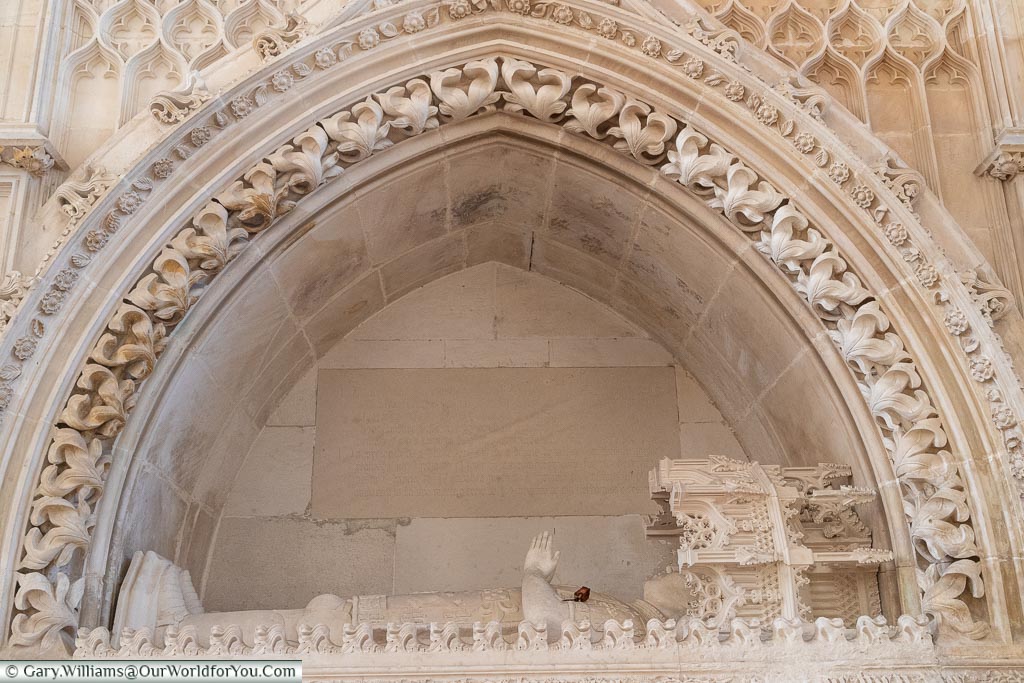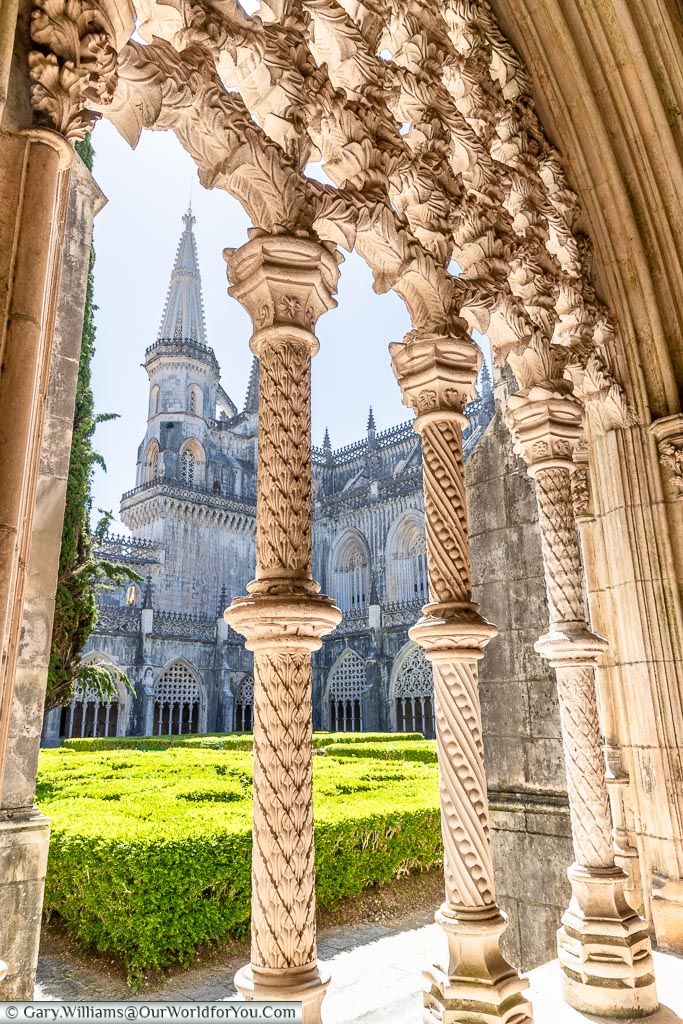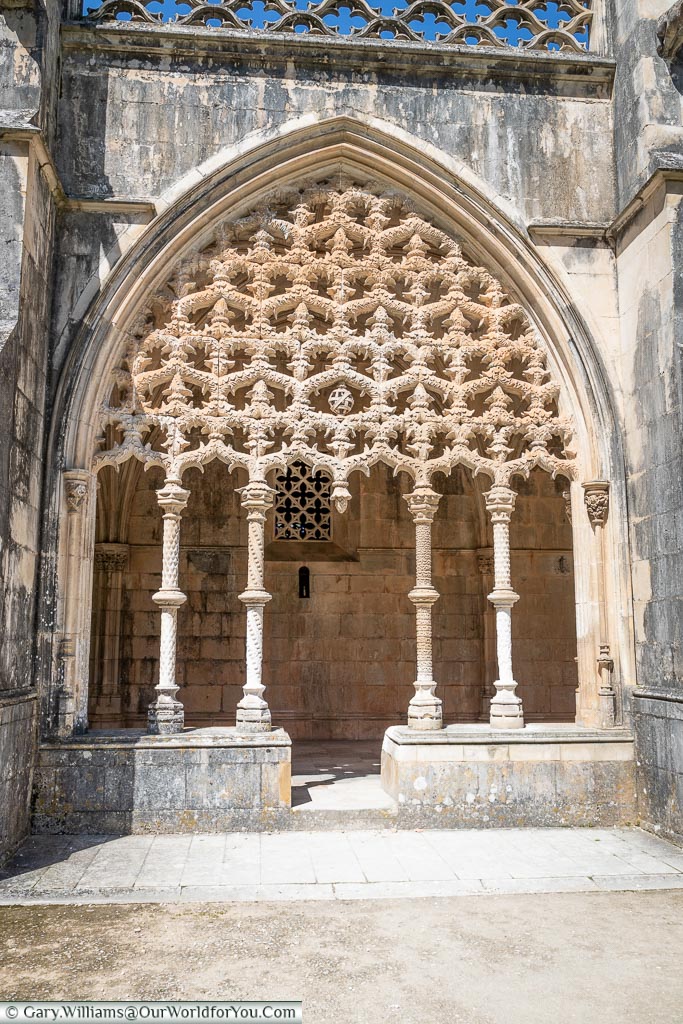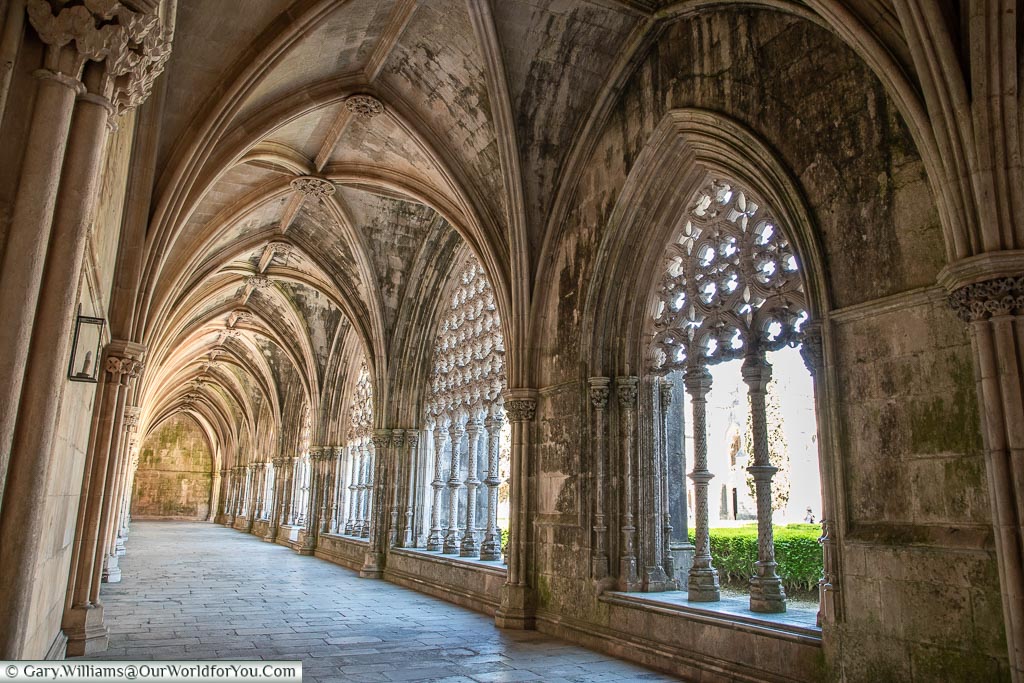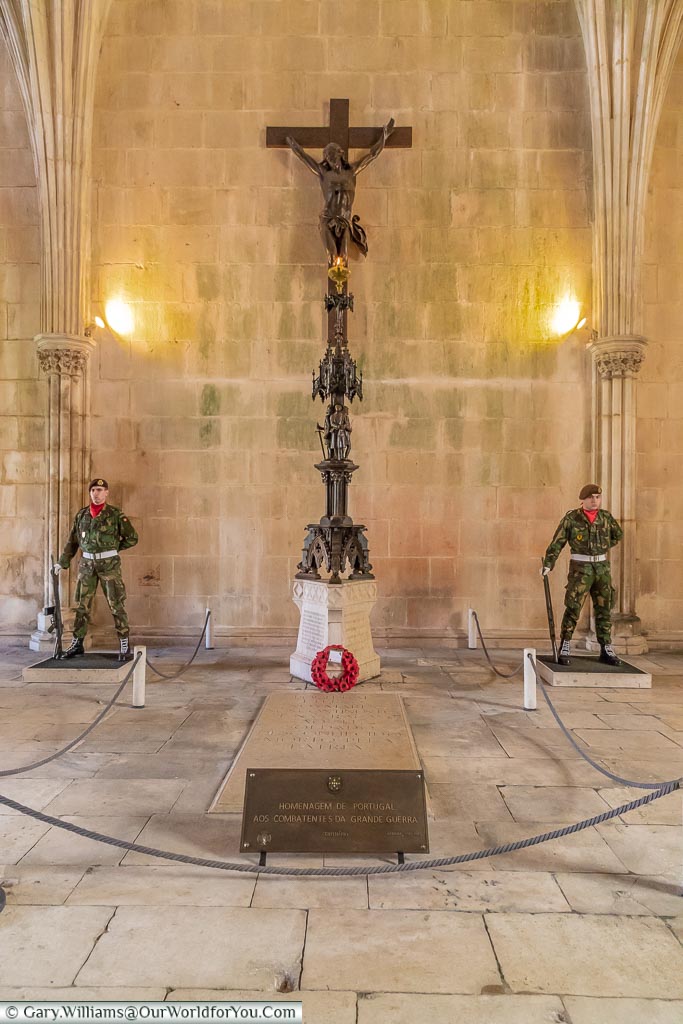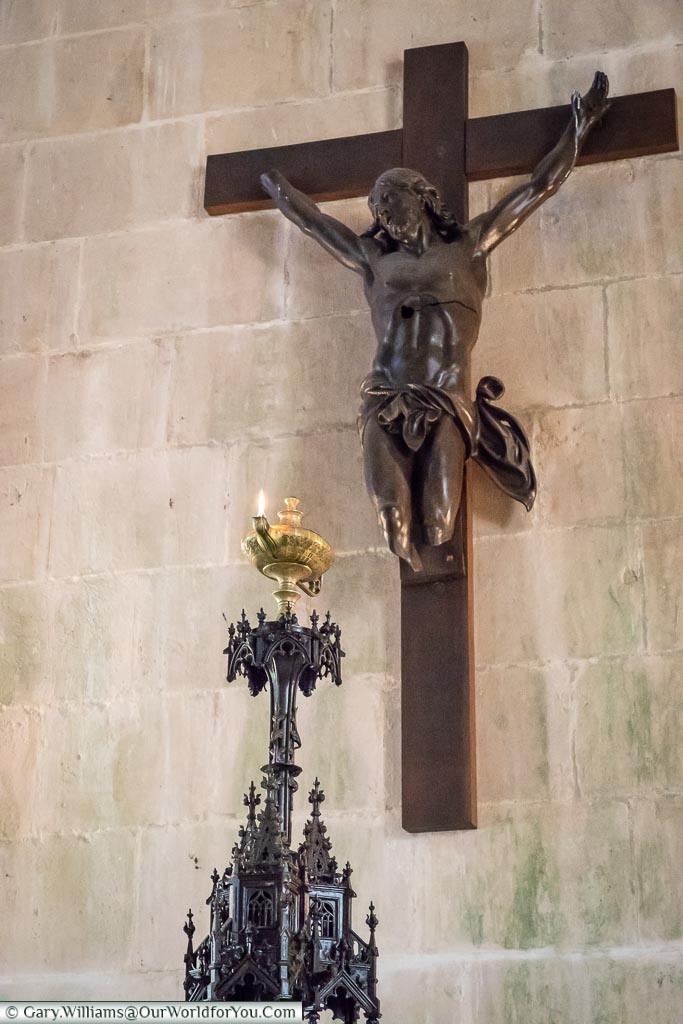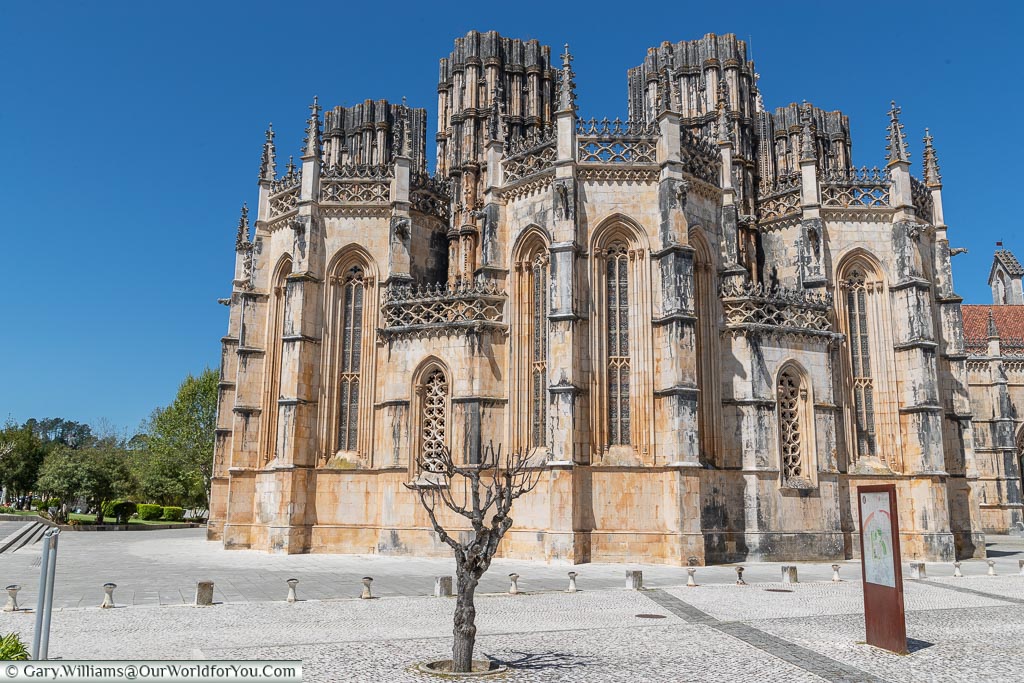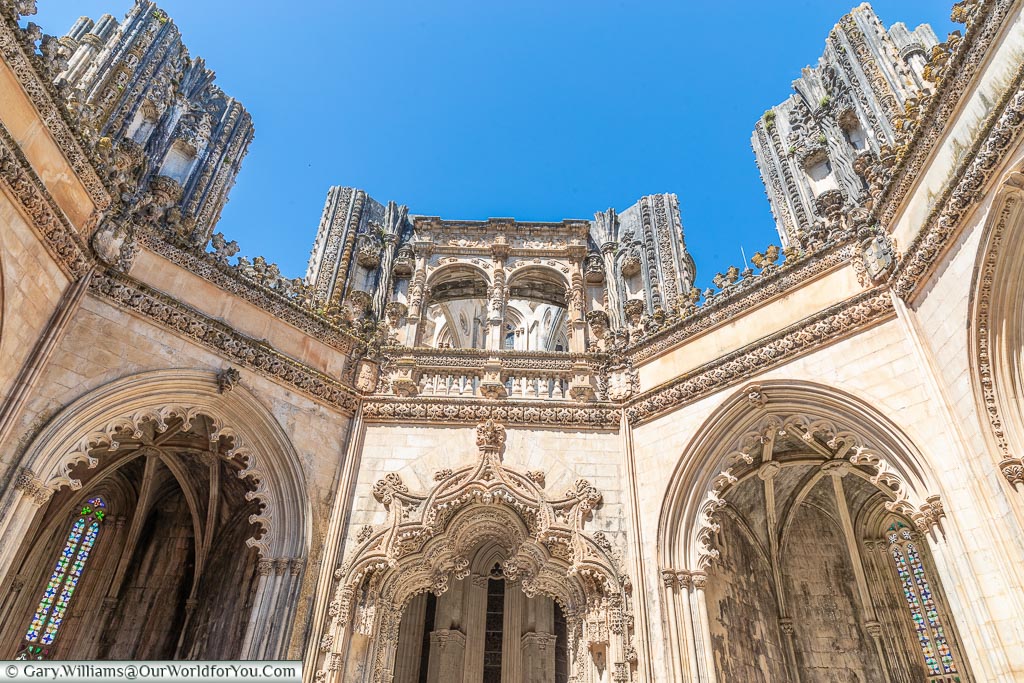
Tale of two monasteries, Portugal
Alcobaça and Batalha
While we were road tripping around Portugal, we wanted to visit two very historical monasteries in the heart of Portugal, which have both been designated UNESCO sites.
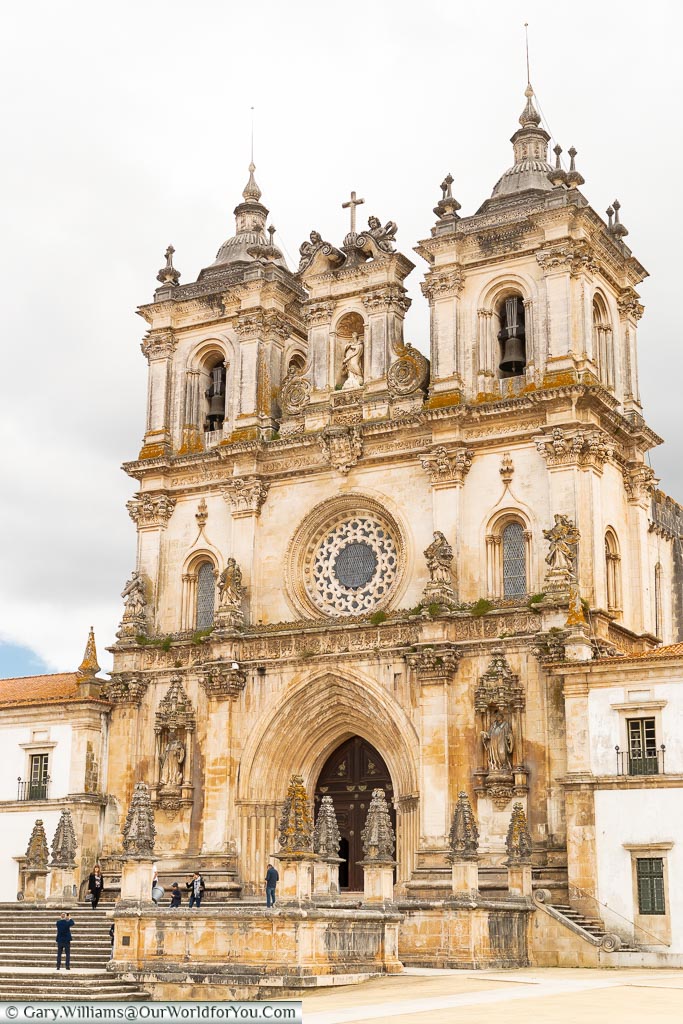
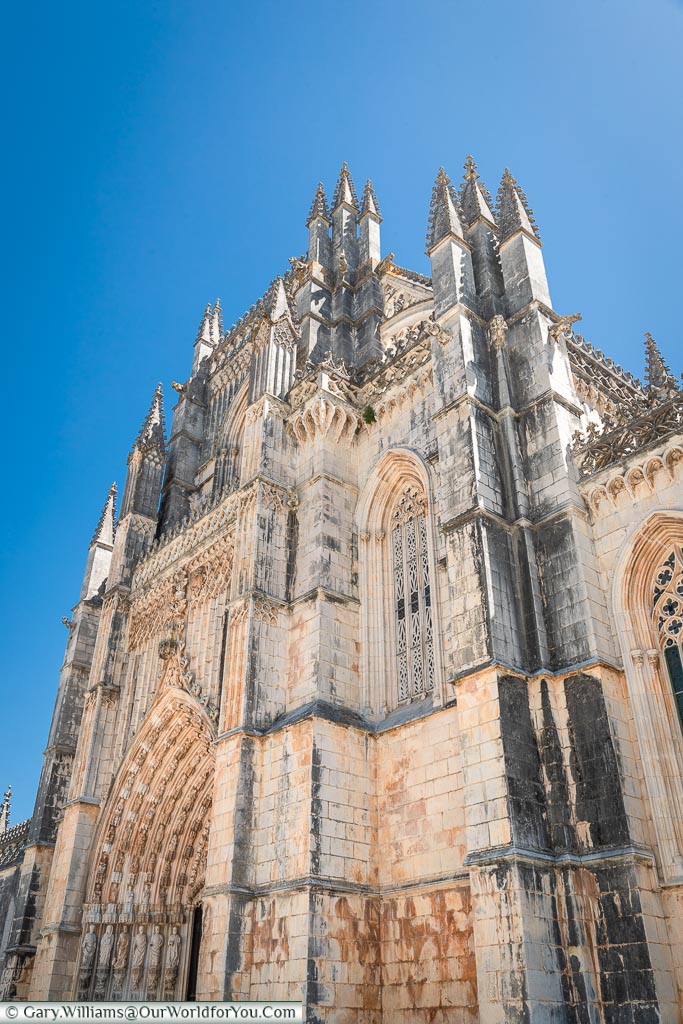
The first being the Monastery of Alcobaça, founded in 1153 by Afonso Henriques, the first King of Portugal.
The second is the Monastery of Batalha, which was built to celebrate the victory in 1385 of the Battle of Aljubarrota by King John I of Portugal.
Monastery of Alcobaça
When we approached the Monastery of Alcobaça, I couldn’t believe the size of it, it’s quite imposing, the façade is amazing. Although, I have since found out that it is Portugal’s largest church and one the first Gothic buildings in the country.
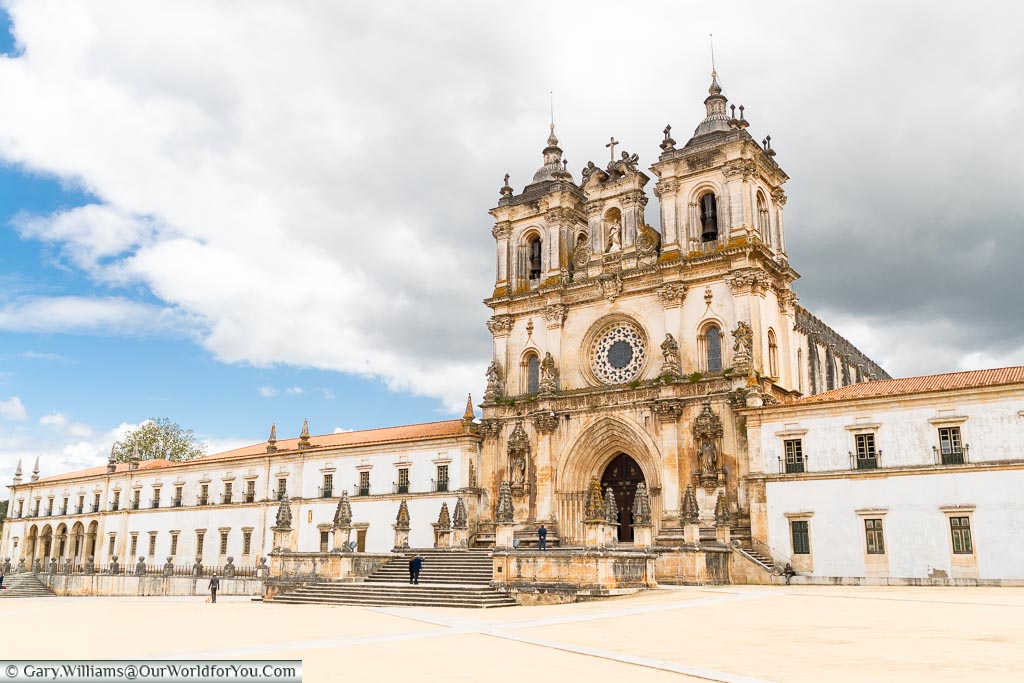
As you step inside, you are immediately hit with the incredible size of the nave and the soaring columns that your eye follows along.
Within this ancient Monastery is the tomb of Pedro I & his mistress Inês de Castro, who was murdered under the instructions of Pedro I’s father Afonso IV.
Point to Note
If you just want to take a look around the church it’s free of charge; however, the €6 to stroll around the whole monastery is undoubtedly worth it.
Room of the Kings
The first room we wandered into was the Sala dos Reis (room of the Kings), which was encircled with 17th-18th-century statues of Portuguese Kings. And a historical depiction in the traditional blue and white azulejos so synonymous with Portugal.
A reference guide
Our recent new found love is Portugal, it is such a beautiful country. While planning our trip, I used the DK Eyewitness books. I find them extremely informative, easy to follow and the pictures and maps tempt you into discovering more.
We used a previous version of this book to plan our north to south Portuguese road trip, now you can grab the revised copy.
Cloister of Silence
From here we walked through to the large tranquil cloister built in 1308 by order of King Dinis, which is in keeping with the simplicity of the Cistercian style.
Within the cloister is the octagonal lavabo, although, quite simple on the outside, within is an elegant Renaissance water fountain, where monks would have washed their hands.
Tempted to?
How big?
What astounded me within the monastery was the size of the kitchen and more so the incredible size of the chimney which funnelled up from the fire below.
Next to the kitchen is the Refectory where the Monks ate in silence, while they were read to from a pulpit above them.
Did you know?
That the Monastery of Alcobaça has been listed as a UNESCO World Heritage Site since 1989 & the Monastery of Batalha has been listed 1983.
Monastery of Batalha
The eye-catching Gothic Batalha Monastery was built to commemorate the victory of the 1385 Battle of Aljubarrota. It took over a century to build, although part of it is actually known as the ‘Unfinished Chapels’ since it was never really finished.
The monastery sits proudly in a large open square in Batalha and is really quite striking. As you stroll in, once again it’s the enormity of the nave and the pillars that lead your eyes down to the stained-glass windows.
Point to Note
It’s free to visit the church; however, like Alcobaça Monastery the €6 is undoubtedly worth it to tour the rest of the Monastery.
Founder’s Chapel
Just in the entrance of the church is the Founder’s Chapel which houses the joint tombs of King John I of Portugal and his English wife, Philippa of Lancaster.
In the Founder’s Chapel, the King’s four sons are also entombed one of which is Henry the Navigator. Henry is believed to have been one of the initiators of the Age of Discoveries if you’ve visited Belém (in Lisbon) you will have seen the Monument to the Discoveries, which was built to commemorate the 500th anniversary of Henry’s death.
Why not?
Start creating your own Portuguese adventure and discover its incredible countryside and coastlines for yourself, easyJet & British Airways are just a couple of options.
Royal Cloister
We stroll through into the Royal Cloister, and it is beautiful, Gothic arches supported by spiralling carved pillars, and all surrounding the manicured gardens in the centre.
It was charming and serene, sit down and enjoy the tranquillity or just take a slow amble around, you can take as long you like.
Tomb of the Unknown Soldier
When we entered the Chapterhouse, there’s an incredibly moving vigil taking place. Two sentries are standing guard over the Tombs of the Unknown Soldiers from WWI.
The remains of a soldier from the Flanders Battlefields and one from Africa were entombed in April 1921. Not only are they protected by the two sentinels there is also the Eternal Flame flickering above, which is lit by olive oil.
Unfinished Chapels
To enter the Unfinished Chapels, you exit the church and wander around to the octagonal building, erected on the church’s outer wall.
It’s quite amazing when you wander in, as it is all open air and it feels like it’s just missing the roof, it’s so symmetrical. However, work was halted on this mausoleum as King Manuel I favoured the Jerónimos Monastery in Belém.
Have You?
Visited Portugal and discovered any historical buildings that we can add to our ‘must see’ list, for when we to start planning our next road trip
Inspired to visit Alcobaça & Batalha?
Not only have they got incredible monasteries, take a stroll around their historical towns, for a little bit more of a taster.
Why not checkout the latest deals on Booking.Com?
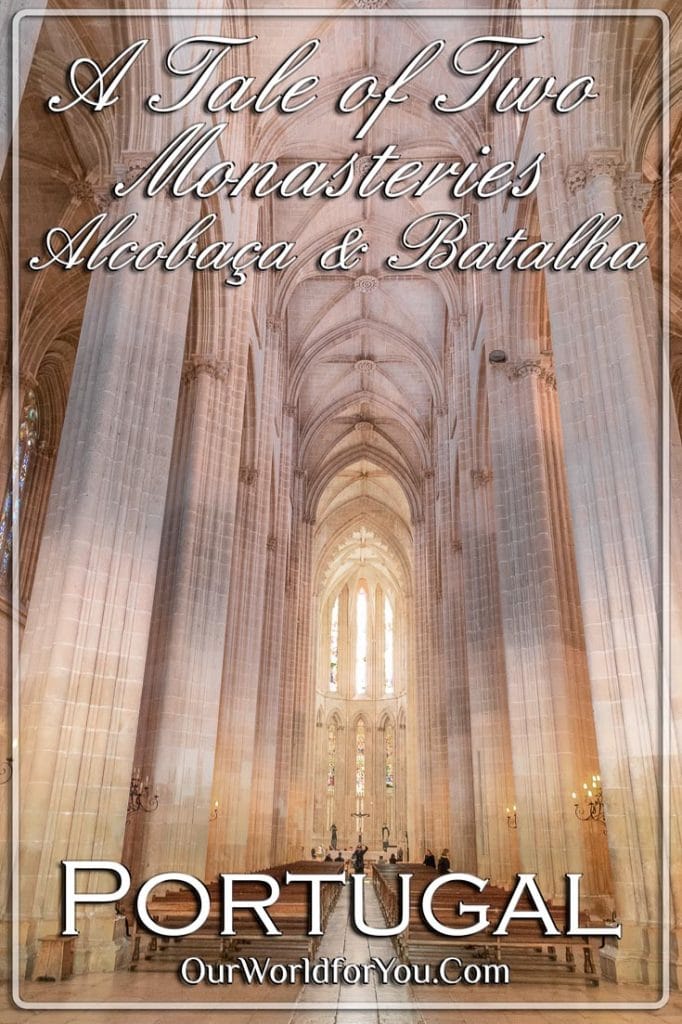
(Why not Pin It for Later?)
